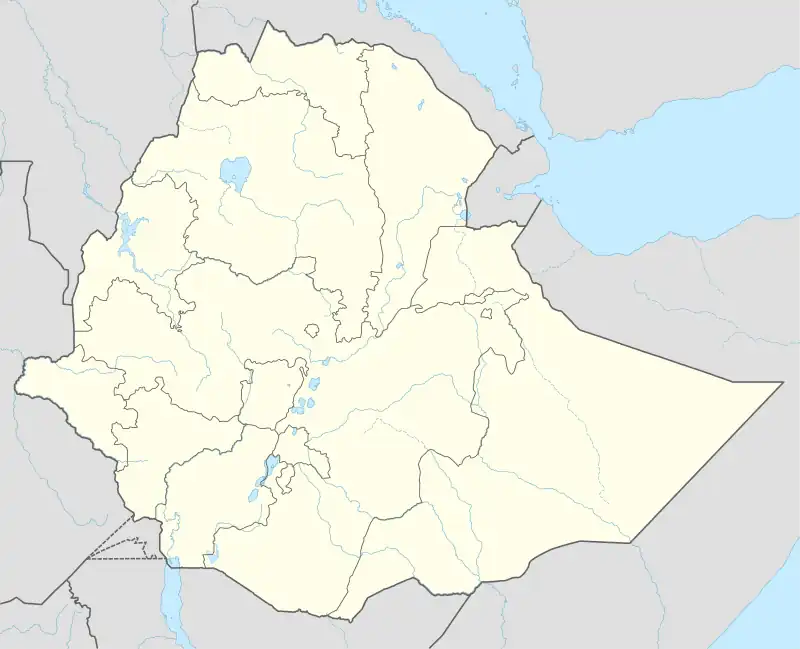Boditi
| |
|---|---|
City | |
 Boditi Map showing Boditi in Ethiopia | |
| Coordinates: 6°52′N 37°52′E / 6.867°N 37.867°E | |
| Country | |
| Region | |
| Zone | Wolaita |
| Woreda | Damot Gale |
| Government | |
| • Mayor | Eshetu Tadesse (Prosperity Party) |
| Area | |
| • Total | 15,255 ha (37,696 acres) |
| Elevation | 1,774 m (5,820 ft) |
| Highest elevation | 2,964 m (9,724 ft) |
| Lowest elevation | 1,612 m (5,289 ft) |
| Population (2023) | |
| • Total | 67,861 |
| • Male | 32,941 |
| • Female | 34,920 |
| Time zone | UTC+3 (EAT) |
Boditi (Amharic: ቦዲቲ) is a city in south central Ethiopia. Located in the Wolaita Zone of the South Ethiopia Regional State, this town has a latitude and longitude of 6°58′N 37°52′E / 6.967°N 37.867°E with an average elevation of 2050 meters above sea level. It is the administrative center of Damot Gale woreda. The town is bounded by Shasha-Gale Kebele in the north, Ade-Koisha Kebele in the south, Chawkare Kebele in the east and Sibaye-Korke kebele in the west. It is located in East Rift valley at a distance of 180 mi (290 km) to the south of Addis Ababa and at about 86 mi (138 km) to the west of Hawassa.
As of 2006 permanent postal service is available, as well as electricity and telephone service, more colleges and higher educational institutions are currently being developed as the number of school-aged children increases.[1] The map attached to C. W. Gwynn's account of his 1908/09 triangulation survey of southern Ethiopia shows Boditi, with the note that it had a market.[2] During the early 1930s, the market was held on Tuesdays and was very important. In 1969, a group of Swedish architectural students surveyed Boditi, and presented their findings to the University of Lund.[3]
Demographics
The 1994 national census reported this town had a total population of 13,400 of whom 6,479 were men and 6,921 were women. Boditi is one of densely populated areas in South Ethiopia Regional State. Total population of the town as conducted by central statistical agency of Ethiopia in 2023 is 67,861. Among these males count 32,941 and females count 34,920.[4]
References
- ↑ "Infrastracture in Boditi". www.snnprbofed.gov.et.. Southern Nations, Nationalities and People's Region, Bureau of Finance and Economic Development website (accessed 27 September 2009)
- ↑ Gwynn, "A Journey in Southern Abyssinia", Geographical Journal, 38 (1911), pp. 113-139
- ↑ Summary at "Local History in Ethiopia" The Nordic Africa Institute website (accessed 6 June 2008)
- ↑ "Population size of towns by sex as of July 2023" (PDF). www.statsethiopia.gov.et.